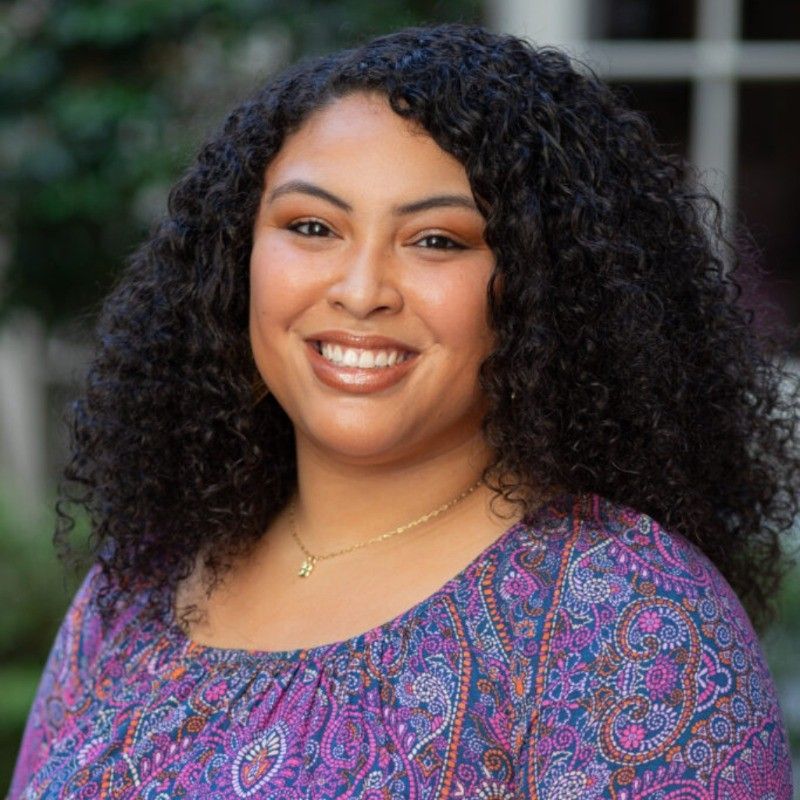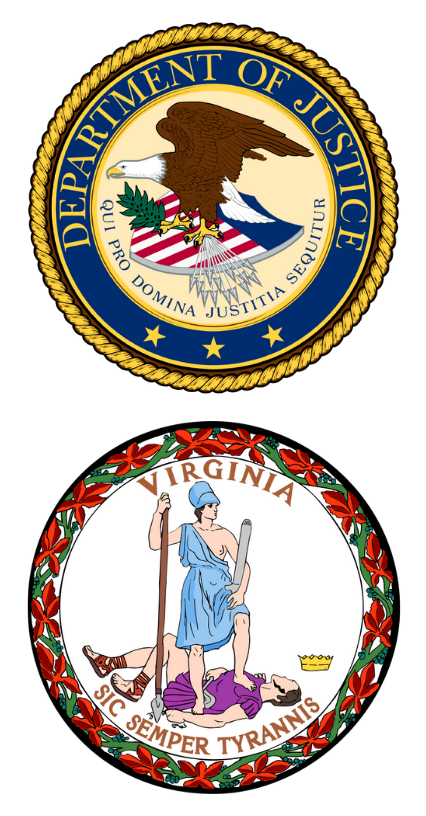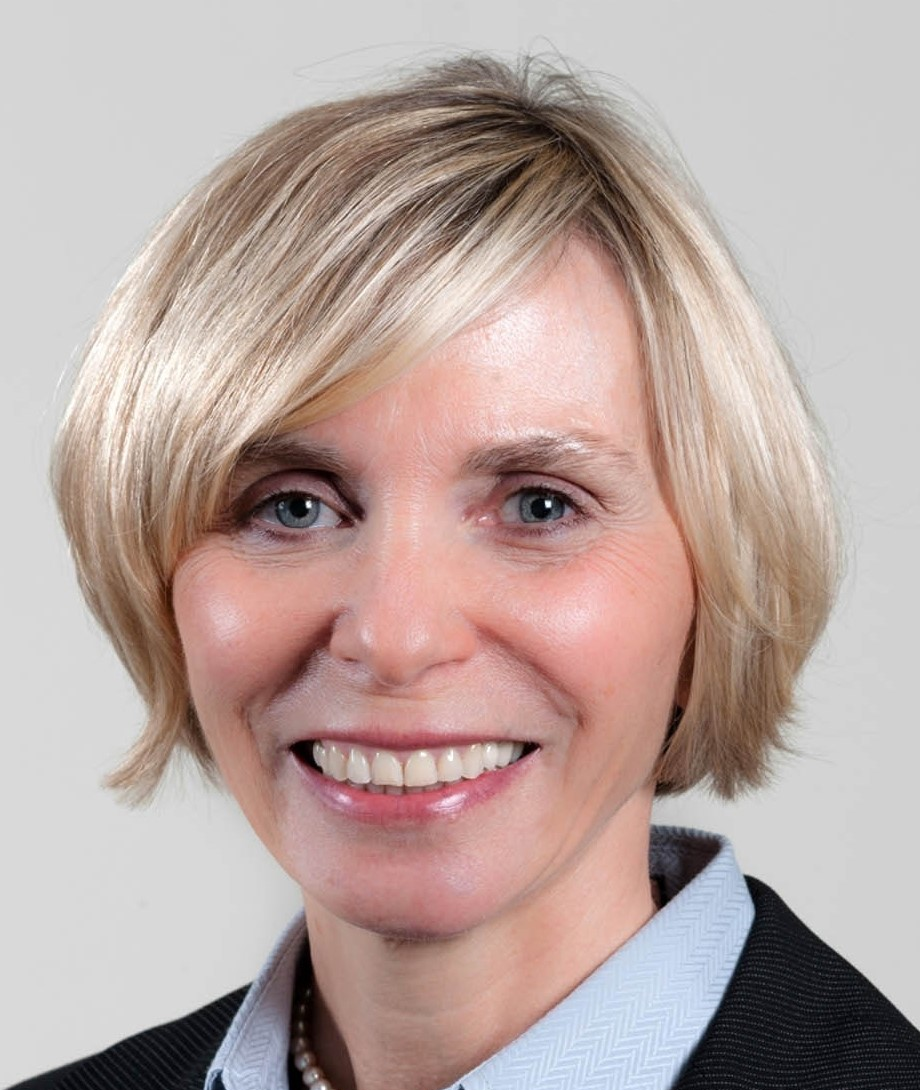Convention Schedule
September 29th - October 1st, 2025
Meet the voices shaping the future of inclusion
Monday - September 29th
Same Diagnosis, Different Lives: Supporting Two Siblings, Navigating One System - By Brianna TenBrink

Two siblings. One Diagnosis. Very different lives. As the eldest sibling to two autistic individuals, Brianna has witnessed firsthand that there is no one-size-fits-all approach to meeting the needs of her sisters. This keynote explores the complexity of support needs, the emotional labor of navigating gaps in a fragmented system, and the critical importance of choice and inclusion. Through a deeply personal lens, Brianna shares her lived experience to shine a light on system inequities and how we can work across disability identity to build a more inclusive, effective, and collaborative advocacy landscape.
Sensory Foundations- Implications for Behavior, Communication and Life Skills (Part 1) - By Wendy Atkinson
This session will be presented in two parts. Many factors can cause behaviors and delays in developmental skills, and sensory is a primary one that is often unknown or misunderstood. Eight sensory systems can affect a client’s behavior and skill development. A clear perspective of these sensory issues can help us to not only understand a behavioral response, but also help to reduce the frequency and intensity of these behaviors.
This course will expose learners to the eight sensory systems, and how high and low thresholds in each area can affect a client’s response and can contribute to habitual and even estructive behaviors. It will also help learners to have a better compassion and understanding from the perceptive of the client, and can assist them in assessing the environment, and understanding how to provide tools that may help to de-escalate the behavior, or even eliminate it with the right level of proactive tools and strategies. Additionally, you will see how learning is difficult, and skills become delayed with sensory processing issues taking the forefront in the brain and decreasing ability to be at a calm-alert state to learn new skills.
SIS Readiness: Be Informed. Be Prepared. Be Heard. - Apryl Boersma, Cherie Takamoto, Alex & Allison Thurman
The Supports Intensity Scale (SIS) plays a critical role in shaping services and supports for people with developmental disabilities—yet many individuals and families feel unprepared for the process. In this session, you’ll learn what to expect before, during, and after the SIS, how to prepare effectively, and how the results can impact services and planning. We’ll also talk about the emotional weight this process can carry—and offer strategies for self-care and advocacy throughout. Whether it’s your first SIS or your fifth, this session will help you walk in with confidence and come out feeling heard.
From Passion to Policy: Two Self-Advocates Changing the Law - By Charlotte Woodward & Buddy Cassidy
Two self-advocates share their powerful and personal journeys of taking an idea—rooted in lived experience—through the challenging process of state legislation: one leading to the successful passage of a bill, the other resulting in a setback that still fueled awareness and future advocacy. They’ll reflect on what it takes to write and support legislation, build relationships with lawmakers, and testify at the Capitol—all while navigating the unique challenges of being a self-advocate, including doubts from others, systemic barriers, and even moments of self-doubt.
This session offers a real-world look at advocacy in action, showing how persistence, community support, and even setbacks can spark long-term change. Attendees will leave informed, empowered, and ready to raise their own voices for a better future.
Championing Communication: An Update on One Family's AAC Advocacy- By Toby & Lindsay Latham
In Fairfax County, Toby and Lindsay Latham have worked persistently to improve supports and services for students who need and use AAC in the classroom—calling attention to gaps in staff training, lack of data access, and opportunities for meaningful inclusive experiences. When local efforts to improve instruction in AAC stalled, they took their advocacy to the Virginia General Assembly, where they successfully helped drive the passage of the Commonwealth’s first law requiring AAC training in public schools.
This session offers an inside look at their advocacy journey—from school board testimony and community coalition-building to legislative strategy and policy wins. Attendees will hear about the challenges the Lathams faced, the approaches that proved most effective, and the work that still lies ahead to ensure communication equity for all students. Whether you’re a parent, educator, policymaker, or advocate, this session will offer practical insights and inspiration for making systems change from the ground up.
Sensory Foundations- Implications for Behavior, Communication and Life Skills (Part 2) - By Wendy Atkinson
A continuation in the discussion and presentation. ofMany factors can cause behaviors and delays in developmental skills, and sensory is a primary one that is often unknown or misunderstood. Eight sensory systems can affect a client’s behavior and skill development. A clear perspective of these sensory issues can help us to not only understand a behavioral response, but also help to reduce the frequency and intensity of these behaviors.
This course will expose learners to the eight sensory systems, and how high and low thresholds in each area can affect a client’s response and can contribute to habitual and even estructive behaviors. It will also help learners to have a better compassion and understanding from the perceptive of the client, and can assist them in assessing the environment, and understanding how to provide tools that may help to de-escalate the behavior, or even eliminate it with the right level of proactive tools and strategies. Additionally, you will see how learning is difficult, and skills become delayed with sensory processing issues taking the forefront in the brain and decreasing ability to be at a calm-alert state to learn new skills.
Building an Inclusive Crisis Response: Virginia’s Continuum of Care - By April Dovel & Alexandria Robinson
Virginia is working to ensure that crisis response is inclusive and accessible for everyone, including people with intellectual and developmental disabilities, brain injury, and other cognitive disabilities. As part of the national Link Center State Policy Academy, Virginia is strengthening its Crisis Continuum of Care so people can get help in many ways—not only by calling 988. Whether someone connects through a mobile crisis team, walks into a stabilization unit, is referred by emergency responders, or enters through post-crisis support, the goal is the same: timely care, safe stabilization, and a pathway forward.
This session will share how Virginia’s efforts fit into a national initiative to make crisis systems more responsive, inclusive, and supportive for all people in moments of distress.
The Decisions in Decision-Making: An Approachable Way to Plan - Janet & Sharon Staus, Ben King, Josh Edwards, Donna & Emma Budway
Come learn about the full range of choice-making, from using natural supports, formal supported decision making agreements, to different guardianship arrangements. Attendees will leave this session able to compare decision-making support options and begin to identify which supports may be the best fit for themselves and their loved ones. They will also be able to describe how a person's rights change under different arrangements, and leave with resources to help them pursue their decision-making goals.
Fundraising Ideas from the Field - Pam McGregor, John Santoski, Karen Smith
Looking for fresh ways to strengthen your organization’s fundraising efforts? In this session, leaders from local chapters of The Arc will share creative strategies, lessons learned, and practical tips from their own experiences. From community events to innovative partnerships, you’ll leave with ideas you can adapt to your organization to grow sustainability and impact.
Tuesday - September 30th
Virginia’s Shared Values
Join DBHDS, The Arc of Virginia, and community partners for a session about what truly matters — how people with developmental disabilities and their families are treated and supported. In small-group conversations, you’ll share your experiences and ideas to help shape the values that guide our system. Whether you’re a person with a disability, a family member, a professional, or a supporter — your voice matters. Come ready to talk, listen, and ensure the system reflects what’s important to you.
Access to Quality Services and Supports: What’s Standing in the Way?
In this session, we want to hear from you about the barriers you face — from workforce shortages and provider gaps to housing challenges and work incentives. State surveys have shown mismatches between what people need and what’s available, and your experiences can help bring those gaps to life. By sharing openly, you’ll help us better understand what’s happening on the ground and what solutions might create a system that truly works.
When Family Is the Caregiver: Listening to LRIs
Join us for a conversation focused on the unique needs and challenges faced by families who serve as legally responsible individuals. We want to hear directly from you about what is working, what is missing, and what changes are needed. Your experiences will help shape recommendations for respite, support, and policy improvements that recognize the critical role LRIs play in the lives of people with developmental disabilities.
Autism in the Spotlight
Autism is an increasingly large part of the DD system discussion, but what does that mean for advocacy and policy in Virginia? This open conversation will explore how people and families view the current landscape, what needs might still be unmet, and how we can ensure supports reflect real experiences.
List of Services
Empowering Parents: Navigating the IEP Process with Confidence - By Valenta Wade
This interactive session equips parents and caregivers with the knowledge and tools needed to become strong advocates for their child during the IEP (Individualized Education Program) process. Participants learn how to confidently navigate IEP meetings, understand their rights,
and collaborate effectively with school teams.
The session opens with a "North Star" goal-setting activity, helping parents define long-term priorities for their child’s education and future. From there, the workshop walks families through the IEP process—from referral and evaluation to services and progress monitoring—breaking down each section of the IEP with plain-language explanations and real-life examples. Participants leave with practical strategies to:
● Prepare for meetings
● Ask the right questions
● Track their child’s progress
● Advocate for supports that align with their child’s strengths and needs
Whether new to the IEP process or looking to strengthen their approach, this session empowers
parents to confidently support their child’s success.
Updates from DMAS: What’s Changing, What’s Ahead - By Jason Perkins
Join leaders from the Department of Medical Assistance Services (DMAS) for important updates on Medicaid programs and policies that impact Virginians with developmental disabilities. Learn what’s changing, what’s on the horizon, and how DMAS is working with stakeholders to strengthen services across the state. Time will be reserved for questions.
Blooming in Neurodiversity: An Autistic Taekwondo Instructor’s Journey - By Stephanie Singer
Ever wondered if Taekwondo training is good for individuals with IDD? My life is proof that it not only can, but does. Attendees will hear about my personal journey in Taekwondo, discover the many benefits it has for individuals with IDD, find out how to pick a dojang (martial arts school) that suits your needs, and even learn a few basic moves adapted to your physical and mental abilities!
LEAPing Into Healthy Relationships! - By Brittney Lee & Renée Soniat
Navigating relationships can feel like shifting sand, especially for those who face challenges understanding friendship, trust, and personal boundaries. LEAP offers a calmer path forward. This interactive session is a condensed introduction to LEAP (Leadership for Empowerment and Abuse Prevention), a curriculum co-developed with self advocates and families to help teens and young adults build safe, meaningful relationships.
List of Services
Youth-Led Inclusive Emergency Planning - By Sarah Lineberry & Jason Krause
In Virginia, schools are required to have written emergency plans in place. Recent legislation allows individualized supports and accommodations for emergencies and evacuations to be included in a student’s IEP.
But what does it really mean to have inclusive emergency plans?
The Inclusion Project is a youth-led initiative to promote inclusion and belonging in Virginia’s K-12 schools. This year, in the wake of flooding in western North Carolina and the week-long water outage in Richmond, Virginia, the Inclusion Project focused on inclusive emergency planning for students with disabilities.
In this session, Inclusion Project youth leaders with disabilities will share their recommendations for including students with disabilities in planning and managing responses to hazardous weather events. They will share a guide for students, teachers, and schools to use to make sure that everyone’s needs are met during an emergency.
Ready to Ride the Waves: Preparing for Emergencies - By Jumoke Akinrimisi & Tamara DelRosario
Life can feel like a serene journey across the vast, blue waters, where we're free to chart our course. But storms are an inevitable part of the voyage, and we navigate them from vastly different vessels - some in sturdy yachts, others in fragile canoes. By proactively creating an emergency plan, we can significantly increase our chances of safely weathering these storms and emerging stronger on the other side. Let's equip ourselves to ride the waves of adversity and build resilience for whatever the seas may bring.
Rooted in Strength: Building a Life of Passion and Power with Disability - By Hannah Setzer
This interactive breakout session invites participants to reflect on their dreams and chart a personal path to building a life full of meaning. Using Hannah Setzer’s powerful story of resilience, authenticity, and determination, this session guides attendees through practical tools and heart-centered exercises designed to help them explore their passions and purpose while navigating the unique challenges of living with a disability.
Funding and Supporting Community Connection on an Agency level - By Nicole Adams
Learn how Hope House Foundation developed and implemented an agency-wide approach to delivering truly person-centered in-home residential supports. This session will explore how the organization built systems around the unique goals, preferences, and needs of each person they support, and how they leveraged the Community Guide service under the Medicaid waiver to foster deeper connections and community involvement. Hear lessons learned, practical strategies, and the real-life impact of shifting from traditional models to a fully person-centered framework.
List of Services
Better Days Through Positive Behavior Support: Understanding and Applying PBS - By Justin Creech
Positive Behavior Support (PBS) is more than a strategy—it’s a person-centered approach built on the science of ABA to build better days for people with disabilities, their families, and support teams. In this session, we’ll break down what PBS really means, how it works across settings, and why it leads to stronger relationships and safer, more supportive environments. Using real-life examples, we’ll explore practical ways to understand behavior, prevent crises, and teach meaningful alternatives. Whether you're a parent, direct support professional, self-advocate, or provider, this session will leave you with tools, insights, and hope for better days in the future.
A Parent & Self-Advocate’s Guide to Understanding Research & Research Participation - By Carol Schall, Ph.D., Hannah Carignan, M.A.
In this session, participants will learn the basics needed to understand and participate in research. Presenters will cover what research is, why it is important, what to expect, and how to identify research red flags. With autism and other developmental disabilities frequently in the news and drawing attention from the new administration, families and self-advocates are seeing more opportunities—and sometimes more pressure—to participate in studies. This makes it more important than ever to know how to navigate research responsibly. Join researchers from VCU to learn all about the process, opportunities, and how to be an informed research participant.
Technology That Empowers: Training, Mentors, and Tools - By Ashley Africa-Osborne, Jesse Monroe, Shay Ruff
This panel will explore how everyday technology can support greater independence and inclusion for people with developmental disabilities. Panelists will share practical tools and approaches, including digital literacy training through AT&T, tech mentoring, apps, and devices that support daily routines, communication, safety, and connection. Whether you're just getting started or looking to use technology in new ways, this session will highlight accessible options, practical strategies, and the power of personalized support.
Advocacy 102: Beyond (Just) the Basics - Ashley Wright
There's a lot going on in the world, and now — more than ever — a strong grassroots advocacy base is what Virginia needs. Whether you're feeling overwhelmed, motivated, or somewhere in between, there's a way for you to get involved and be engaged in collective advocacy efforts. This session will review some of the essentials of effective communication and meaningful interaction with elected officials, while also digging into how building bridges and maintaining relationships with decision makers at all levels of the policy process is more crucial than ever. We will also cover opportunities for engagement throughout the year (not just at the General Assembly, or on Capitol Hill) — and discuss how everything is political, but not everything has to be partisan.
List of Services
From Settlement to Solidarity: Honoring the Journey

As part of this year’s Annual Convention, The Arc of Virginia is hosting a Special Recognition Dinner to honor the powerful, collective journey that began with the U.S. Department of Justice Settlement Agreement—and continues today through our shared commitment to inclusion, equity, and community.
Now that the settlement has officially transitioned to a permanent injunction, we are taking this moment to honor the self-advocates, families, leaders, and allies who made it possible—through tireless advocacy, courageous storytelling, and an unwavering belief that people with developmental disabilities deserve to live fully included lives in the community.
This special evening will bring together individuals who shaped this journey, including many members of the DOJ team and the Commonwealth team, to thank them for what we’ve achieved together and recommit to the work still ahead.
List of Services
Wednesday - October 1st
List of Services
Partnering with Genetics-How Services Can Benefit Your Family - By Tahnee Causey
The role that genetics and genetic counseling can play in the care of family members with disabilities is often confusing and misunderstood; however, new developments in genetic testing often lead to family referrals for genetic evaluation. This session can help families navigate the uncertainty to better decide if they wish to see a genetics provider and how to prepare for this appointment.
Turning 18 in Virginia: Preparing for the Next Chapter - By Amanda Raymond
Turning 18 is a big deal. An 18-year-old is legally considered an adult in Virginia and can make their own legal, financial, medical, and educational decisions. For some individuals with disabilities, this will not be an issue. Others may need support. This workshop will share basic information about things that need to be considered as your loved one turns 18.
Real Pay for Real Jobs EPIC model - By John Stewart, Donna Grumiaux, and Ingrid Gagnon
In October 2022, DARS started a project called the This project helps people with disabilities find better jobs. In the past, many people with disabilities were only given jobs where they worked with other disabled people and were paid less than minimum wage. Most of these jobs did not give raises or promotions.
This new project gives people with disabilities a chance to have the same kind of jobs and rights as people without disabilities.
We have been learning how to support people in getting these better jobs. We are helping people understand that they can get these jobs. We are also teaching them how they can do well in these jobs. And we are helping them find a team of people who will support them in their work journey.
Come and learn how these supports can help everyone find good, fair work.
Advocating While Black™ Miles to Go Black Parental Advocacy and the Fight for Educational Justice in Virginia - By Cheryl Poe & Dr. Kathryn Wiley
Building on the Southern Education Foundation’s Miles to Go report, which revealed persistent inequities for Black students with disabilities, the Advocating While Black™ session explores the lived experiences of Black parents navigating the special education system in Virginia. Through a collaborative research partnership between Advocating4Kids, Inc. and Howard University School of Education, this study centers the voices of Black families as they advocate for their children’s rights within public schools.
Drawing from asset-based frameworks and grounded in the growing body of scholarship on Black parental involvement in special education, the presentation will examine key findings related to Individualized Education Plans (IEPs), parental advocacy strategies, academic and disciplinary experiences, and the emotional, financial, and psychological tolls of the special education process. Participants will gain insight into the systemic barriers Black families face, as well as the resilient strategies they deploy to challenge inequitable practices. This session will engage educators, advocates, and policymakers in a timely conversation about equity, accountability, and justice for Black students with disabilities in the South.
List of Services
Navigating Uncertainty: Ensuring Support and Solidarity in the Face of Change - By Genni Sasnett

In the spring of 2025, we faced uncertainty surrounding Medicaid funding as we awaited the outcome of the Federal budget through the 'big beautiful bill." With its passage and the consequential cuts, we now stand at a challenging crossroads. This presentation will explore how we can persevere through these difficulties by maintaining a clear vision and unwavering commitment to a future where everyone receives the support they need to live fulfilling lives within their communities.
We will emphasize the importance of unity, resisting divisiveness, and staying focused on our shared goal—providing equitable assistance to all. Together, we can navigate these turbulent times and continue to advocate for a supportive, inclusive society.
Explore the Convention
Want to Be a Sponsor?
